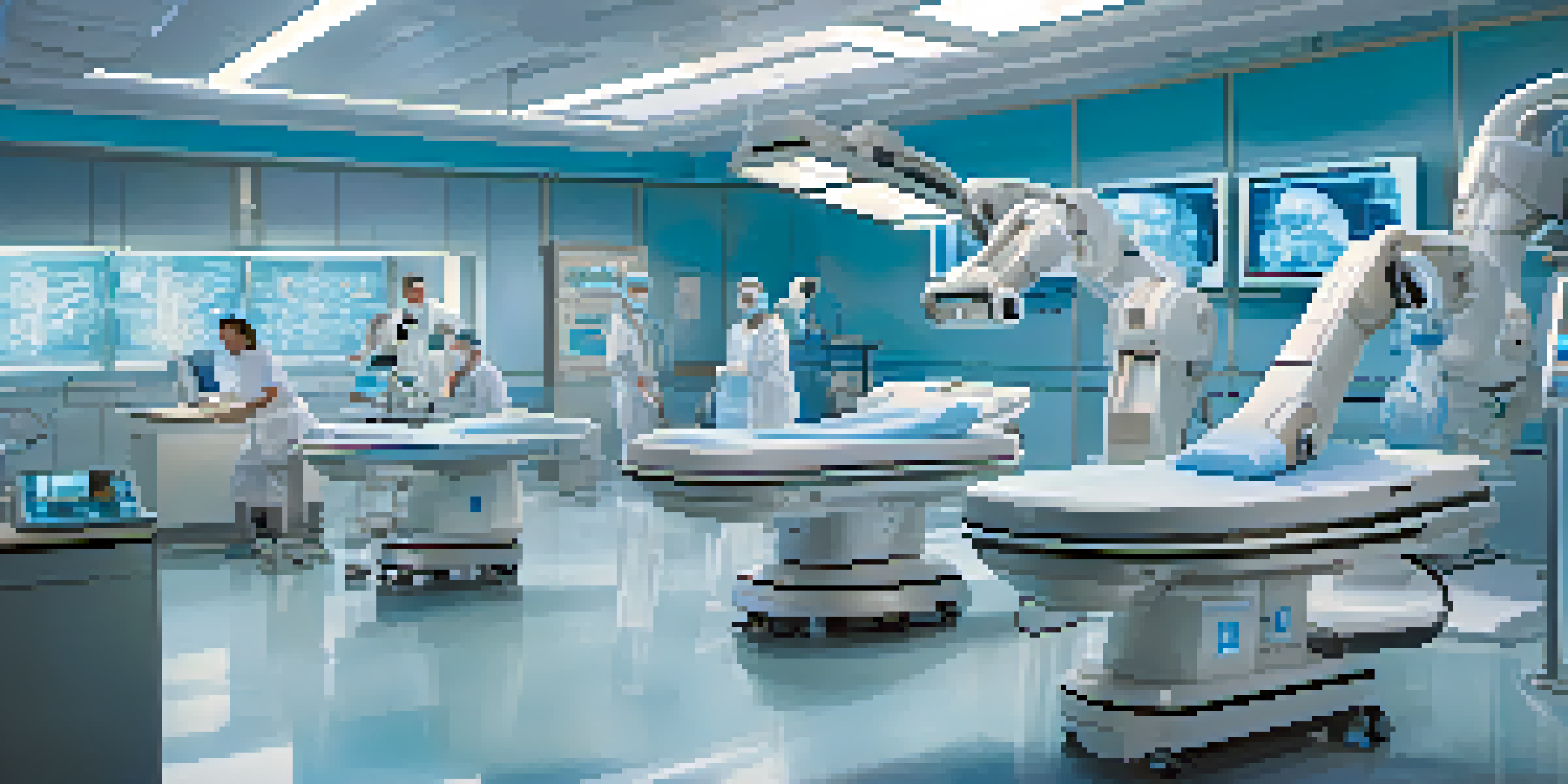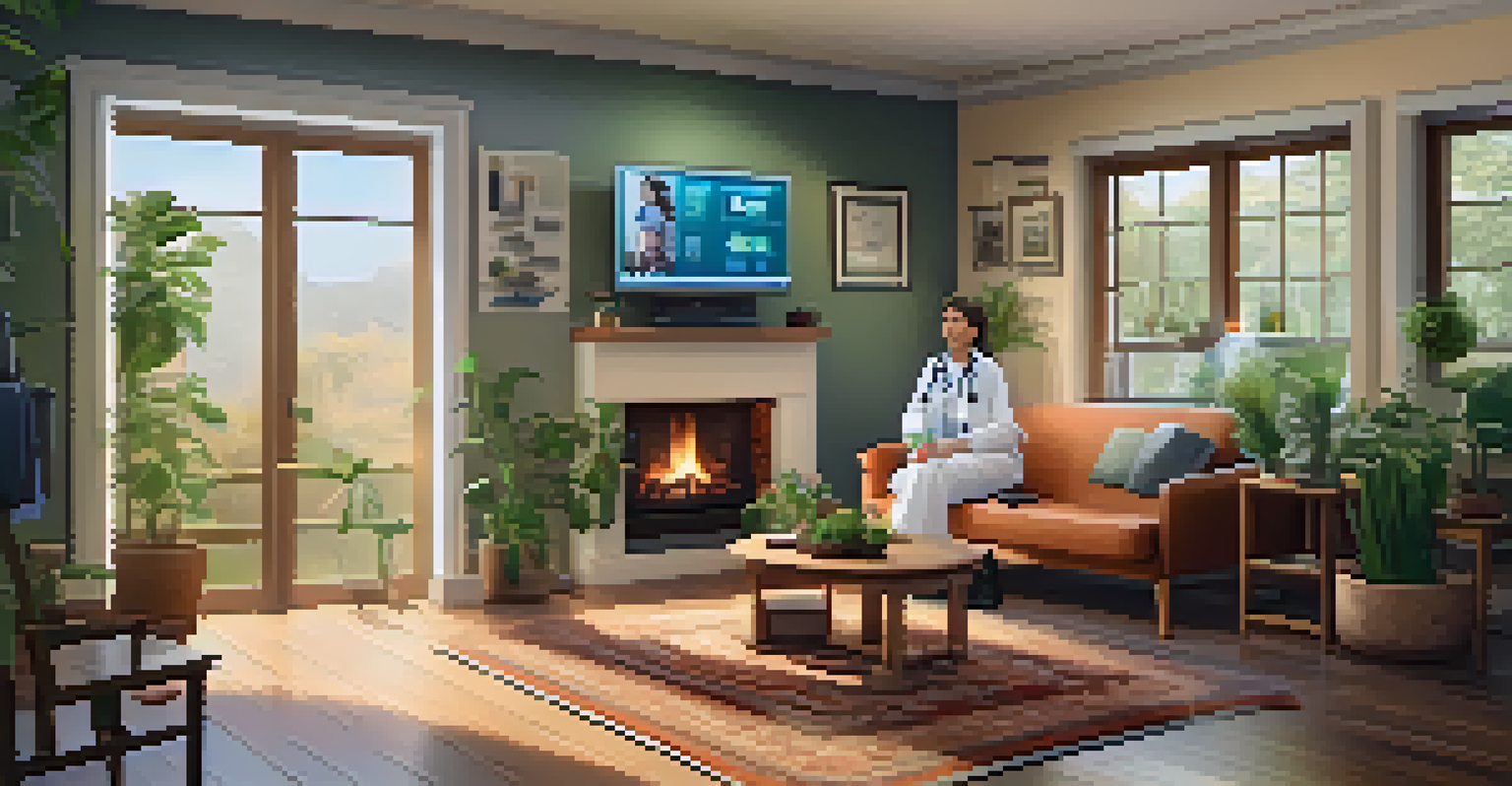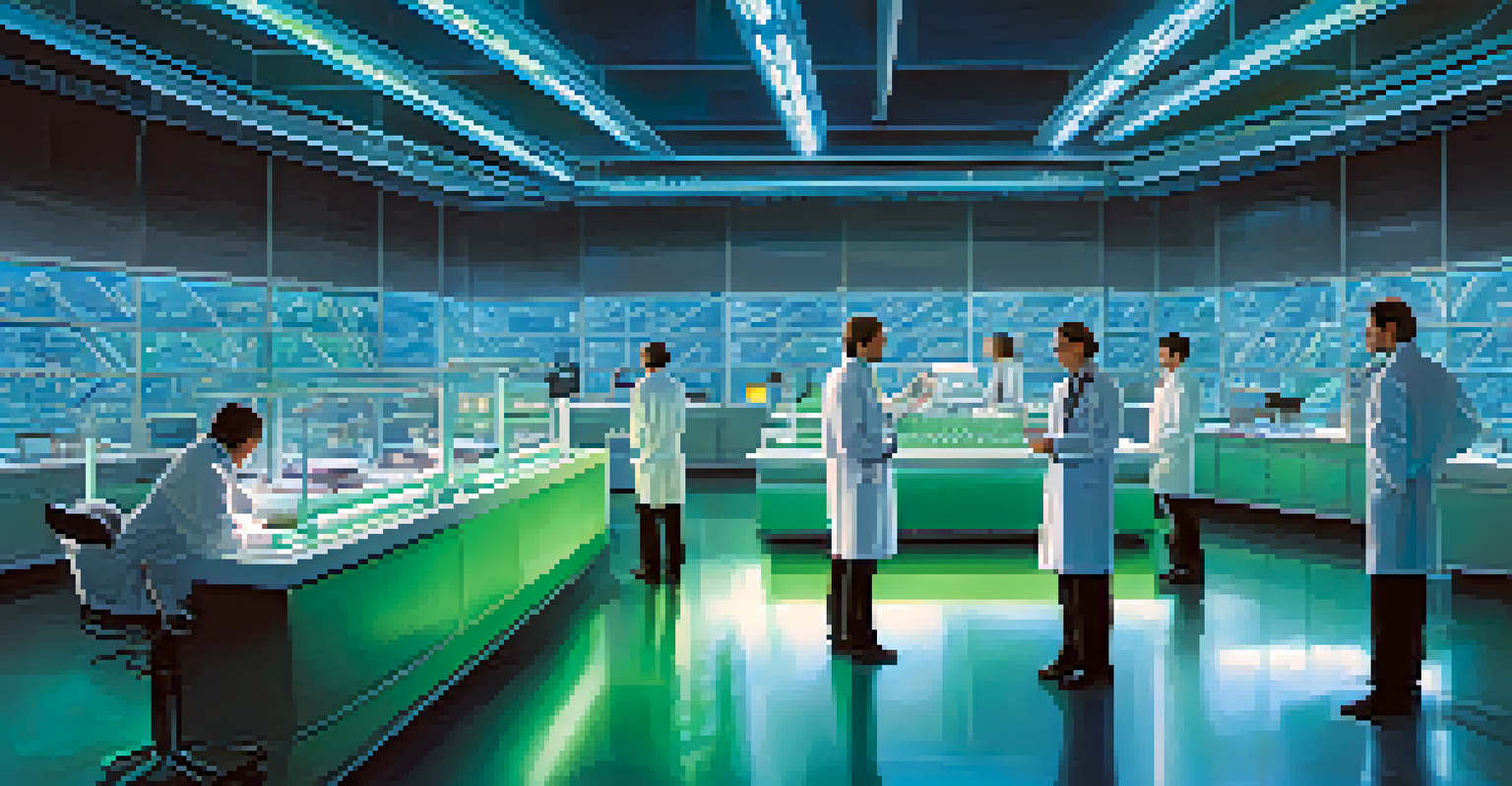The Future of Medicine: Hollywood's Take on Health Tech

Hollywood's Influence on Health Tech Narratives
Movies and TV shows have a unique power to shape public perception, especially when it comes to complex topics like health technology. By dramatizing medical advancements, Hollywood can inspire both curiosity and concern about the future of medicine. For instance, films like 'Elysium' showcase advanced healthcare disparities that provoke thought about access to technology in real life.
Movies are a powerful medium that can shape our perceptions of society and technology, often reflecting our deepest fears and aspirations.
These narratives often highlight a dichotomy between the promise of innovation and the ethical dilemmas that accompany it. Viewers are left questioning the implications of AI in diagnostics or gene editing, as seen in 'Gattaca.' Such portrayals not only entertain but also ignite discussions about the moral responsibilities tied to health tech advancements.
Ultimately, Hollywood serves as a mirror reflecting societal hopes and fears regarding health technology. As audiences engage with these stories, they become more aware of the potential benefits and risks, prompting a collective dialogue about the future of medicine.
The Role of Futuristic Medical Devices in Film
Futuristic medical devices are often central characters in films, showcasing the potential of technology in healing. Think of the advanced surgical robots in 'Star Wars' or the diagnostic machines in 'The Matrix.' These devices not only push the boundaries of what we perceive as possible but also spark imagination about real-life applications.

While these representations are often exaggerated, they can inspire real-world innovation. For instance, the portrayal of wearable health tech has driven interest in developing smartwatches that monitor vital signs. Such devices have emerged from the realm of fiction into our daily lives, showcasing how Hollywood can influence real technological progress.
Hollywood Shapes Health Tech Views
Movies and TV shows significantly influence public perception and discussions about health technology, balancing innovation with ethical considerations.
However, the line between fiction and reality can blur, leading to unrealistic expectations. It's essential for consumers to differentiate between cinematic glamor and the practicalities of medical technology, keeping the focus on realistic advancements and their implications.
AI and Robotics: The New Frontier in Medicine
Artificial intelligence and robotics are frequently featured in Hollywood's portrayal of the future of medicine. Movies like 'Ex Machina' and 'I, Robot' explore themes of autonomy and intelligence in machines, raising questions about their role in healthcare. These narratives push audiences to consider how AI could enhance medical diagnostics and patient care.
The future is already here — it's just not very evenly distributed.
In reality, AI is already being integrated into healthcare, aiding in everything from predictive analytics to robotic surgeries. As these technologies evolve, we see a growing acceptance and reliance on AI-driven solutions, mirroring Hollywood's futuristic visions. This acceptance can lead to more efficient and personalized healthcare experiences for patients.
Yet, with these advancements come ethical considerations. The films often highlight the potential for misuse or the loss of human touch in medicine, prompting discussions about the balance between technology and empathy in patient care.
Telemedicine: A Glimpse into the Future
Telemedicine has been a hot topic in both Hollywood and real life, especially post-pandemic. Films like 'The Terminal' subtly hint at the necessity of remote healthcare solutions, a theme that has become increasingly relevant. Viewers see characters relying on virtual consultations, a concept that has seamlessly transitioned into our everyday lives.
The COVID-19 pandemic accelerated the adoption of telehealth, mirroring Hollywood’s foresight. Patients who once visited clinics in person can now connect with healthcare providers from the comfort of their homes. This shift not only highlights convenience but also addresses access issues for those in remote areas.
Fiction Fuels Real-World Innovation
Futuristic medical devices in films inspire real-life advancements, such as wearable technology, highlighting the blurred lines between imagination and reality.
However, the portrayal of telemedicine in films can sometimes overlook the nuances of patient experience and data security. As we embrace these innovations, it’s crucial to maintain a focus on patient privacy and the human connection that forms the bedrock of effective healthcare.
Genetic Engineering: Science Fiction or Reality?
Genetic engineering has long been a captivating element in Hollywood storytelling. Films like 'Jurassic Park' and 'Gattaca' explore the implications of manipulating DNA, often highlighting both the marvels and moral quandaries of such advancements. These stories resonate with audiences, prompting them to consider the real-world possibilities of genetic modification.
In reality, gene editing technologies like CRISPR are making headlines, allowing scientists to edit genes with unprecedented precision. As these innovations continue to develop, they evoke similar questions about ethics and accessibility as seen in cinematic narratives. The exploration of genetic engineering in film helps demystify the science while emphasizing the societal implications.
Yet, just as in Hollywood, the potential for misuse exists. Movies often serve as cautionary tales, reminding us of the responsibilities that come with such powerful technology. As we advance in genetic engineering, we must remain vigilant about the ethical boundaries and the societal impact of these choices.
The Intersection of Mental Health and Technology
Mental health has gained increasing attention in both film and real-life discussions about healthcare. Movies like 'A Beautiful Mind' and 'Silver Linings Playbook' highlight the importance of mental wellness and often feature technology's role in treatment. This portrayal helps to reduce stigma and encourage open conversations about mental health challenges.
In recent years, technology has played a pivotal role in mental health support. Apps for meditation, therapy, and mood tracking have become commonplace, reflecting a shift towards more accessible mental health resources. This trend aligns with the narratives presented in films, emphasizing the importance of mental well-being in our overall health.
AI and Ethics in Healthcare
Hollywood's portrayal of AI in medicine raises important ethical questions about the role of technology in patient care and the potential loss of human touch.
However, the portrayal of mental health tech in Hollywood can sometimes oversimplify complex issues. While these stories can inspire, it's vital for audiences to seek comprehensive understanding and support beyond what they see on screen. Real-life experiences may differ significantly from cinematic representations, making education and awareness crucial.
The Future: Blending Reality with Hollywood Visions
As we look to the future, the fusion of Hollywood's imaginative storytelling and actual medical advancements offers exciting possibilities. The narratives we see on screen can inspire innovation, pushing the boundaries of what healthcare can achieve. However, it’s essential to approach these portrayals with a critical eye, understanding the difference between entertainment and reality.
Technological advancements in healthcare are rapidly evolving, influenced by both scientific breakthroughs and societal needs. Hollywood serves as a catalyst for discussions that can lead to real-world changes, encouraging collaboration between creatives and medical professionals. This synergy can yield groundbreaking solutions that enhance patient care and outcomes.

In conclusion, the future of medicine is not solely defined by what we see in movies but by the potential for innovation that lies ahead. By engaging with Hollywood's visions and remaining grounded in reality, we can collectively shape a healthier, more tech-driven future for everyone.